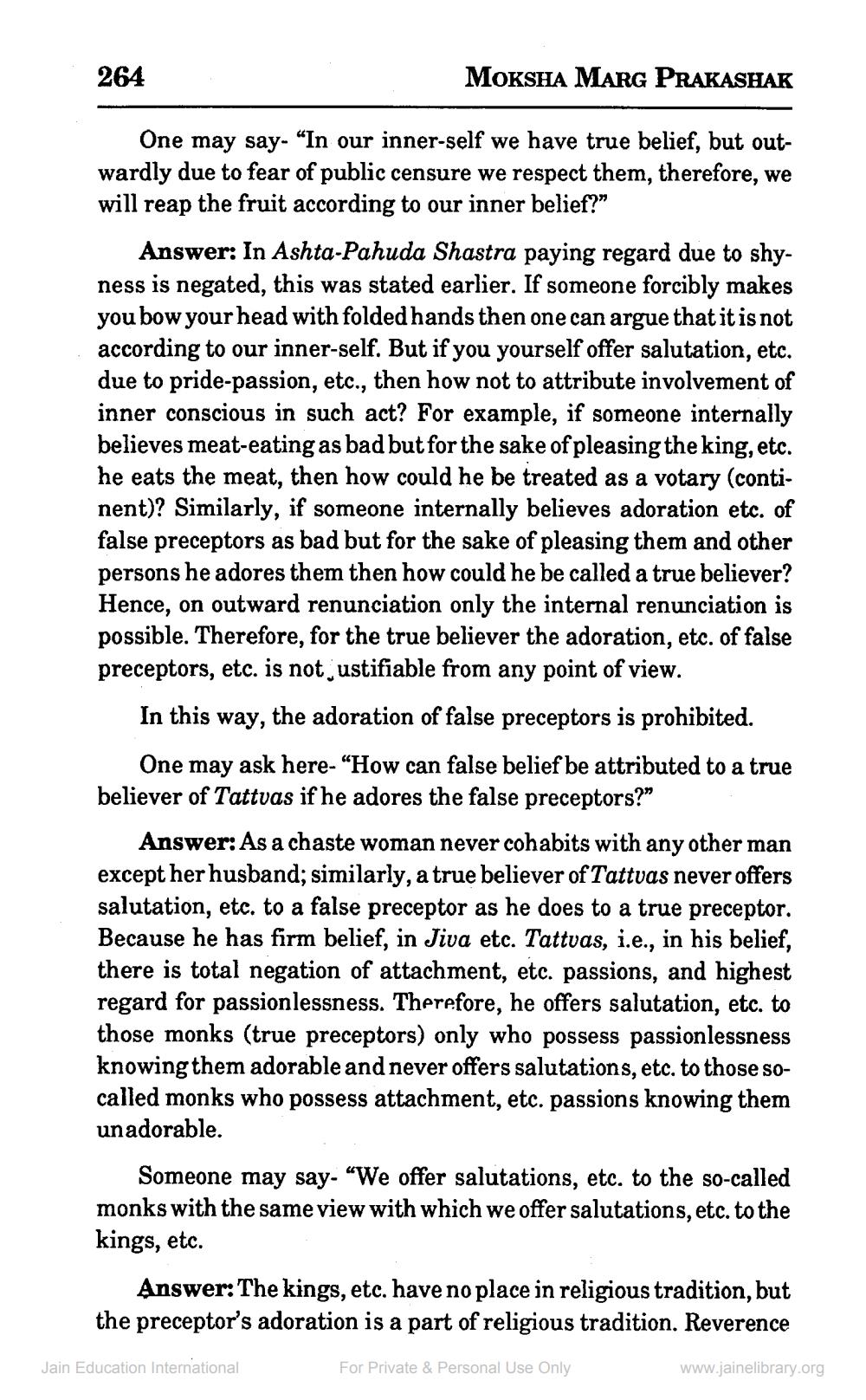________________
264
MOKSHA MARG PRAKASHAK
One may say. “In our inner-self we have true belief, but outwardly due to fear of public censure we respect them, therefore, we will reap the fruit according to our inner belief?"
Answer: In Ashta-Pahuda Shastra paying regard due to shyness is negated, this was stated earlier. If someone forcibly makes you bow your head with folded hands then one can argue that it is not according to our inner-self. But if you yourself offer salutation, etc. due to pride-passion, etc., then how not to attribute involvement of inner conscious in such act? For example, if someone internally believes meat-eating as bad but for the sake of pleasing the king, etc. he eats the meat, then how could he be treated as a votary (continent)? Similarly, if someone internally believes adoration etc. of false preceptors as bad but for the sake of pleasing them and other persons he adores them then how could he be called a true believer? Hence, on outward renunciation only the internal renunciation is possible. Therefore, for the true believer the adoration, etc. of false preceptors, etc. is not ustifiable from any point of view.
In this way, the adoration of false preceptors is prohibited.
One may ask here- “How can false belief be attributed to a true believer of Tattvas if he adores the false preceptors?"
Answer: As a chaste woman never cohabits with any other man except her husband; similarly, a true believer of Tattvas never offers salutation, etc. to a false preceptor as he does to a true preceptor. Because he has firm belief, in Jiva etc. Tattvas, i.e., in his belief, there is total negation of attachment, etc. passions, and highest regard for passionlessness. Therefore, he offers salutation, etc. to those monks (true preceptors) only who possess passionlessness knowing them adorable and never offers salutations, etc. to those socalled monks who possess attachment, etc. passions knowing them unadorable.
Someone may say. “We offer salutations, etc. to the so-called monks with the same view with which we offer salutations, etc. to the kings, etc.
Answer: The kings, etc. have no place in religious tradition, but the preceptor's adoration is a part of religious tradition. Reverence
Jain Education International
For Private & Personal Use Only
www.jainelibrary.org




